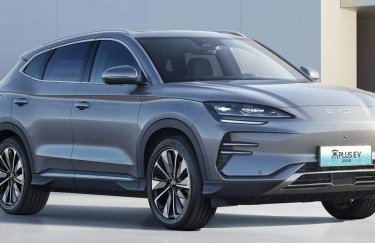
RENO, Nev. — Tesla may receive over $300 million in tax abatements over the next two decades for a massive new expansion of its northern Nevada facility, the product of a 2014 deal for when the company first came to the area on the promise of new jobs and major investments in the area.
The long-awaited sum — kept quiet for a month due to a nondisclosure agreement with state officials — will be voted on Thursday by the Nevada Governor’s Office of Economic Development. Tesla projects it will bring in 3,000 jobs at an average rate of $33.49 per hour and invest $3.6 billion into the economy. It will cover health insurance for 91% of its employees, per its application.
Many have attributed Tesla’s presence in northern Nevada to both economic diversification and fast-rising housing costs.
Combined with both its 2014 investment and project expansion where the company received over $1 billion in tax breaks, Tesla is set for over $10 billion in capital investments in northern Nevada between 2014 and 2028, which economic development board director Tom Burns called “ground zero for the energy transition” in a Monday release. The company projected over $750 million in direct and indirect tax revenue from the proposed tax breaks and those approved in 2014.
“On behalf of Tesla and its 7,000+ Nevada team members, we are grateful to you and your team for your partnership on this critical project,” Chris Reilly, Tesla’s director of workforce and recruiting, wrote to Burns on Thursday.
The company could also be reimbursed for upwards of $80 million in sales and use taxes over two decades, which is not part of the $330 million in already-abated taxes.
In recent weeks, however, the proposed tax abatements have been the subject of scrutiny by some lawmakers in Nevada’s Democratic-controlled legislature, where some have questioned the authority that the board should have over such massive investments and requested to delay the Thursday vote to give more time for public comment.
Concerns rose over a lack of oversight for a non-elected board to provide such massive tax breaks, as well as some Tesla employees being on Medicaid, despite the average hourly wage being much higher than the qualifying income. Some democratic lawmakers requested Thursday’s meeting be postponed, though it appears to still be on schedule.
Tesla, run by billionaire CEO Elon Musk, intends to produce high volumes of semitrucks and make enough cell batteries for 2 million light-duty vehicles annually in Nevada.
Nevada Gov. Joe Lombardo announced the expansion in January, which applies to an existing operation at the Tahoe Reno Industrial Center, about 20 miles (32 kilometers) east of Reno-Sparks. The plan takes the company a step closer to accomplishing previously announced plans to ramp up production of fully electric Tesla Semi vehicles, in order to make 50,000 trucks in North America in 2024.
President Joe Biden’s administration has pointed to the Nevada factory expansion as evidence of a continued “manufacturing boom” since he took office two years ago.
In a letter to Lombardo and Burns from rural Storey County, where Tesla’s factory is located, three county commissioners praised the economic boom the company has brought northern Nevada while bringing up concerns over the amount of staffing and resources needed to support such a facility, including fire and EMS, law enforcement, infrastructure and staffing. The county took much of the hit from the original 10-year tax abatement plan, and the county will need increased tax revenues to help support the expansion, they said. The commissioners asked that county officials participate in the March 2 meeting.
“Nevertheless, Storey County is poised to accept and respond to the needs of a second Gigafactory and continue its positive working relationship with the Tesla team,” the commissioners wrote.
Tesla’s presence is one of several in northern Nevada meant to accelerate the U.S. transition to green energy. Earlier this month, a Nevada-based battery recycling plant used for electric vehicle batteries won a $2 billion green energy loan from the Biden administration Redwood Materials, founded by a former Tesla executive, also received $105 million in state tax abatements on a promise to expand its operations in the region and help the U.S. establish its own electric-vehicle supply chain.
“This region is leading the way to a broader story of what is happening in the country,” U.S. Energy Secretary Jennifer Granholm said while announcing the loan.
___
Stern is corps member for the Associated Press/Report for America Statehouse News Initiative. Report for America is a nonprofit national service program that places journalists in local newsrooms. Follow him on Twitter: @gabestern326.
Sourse: abcnews.go.com






